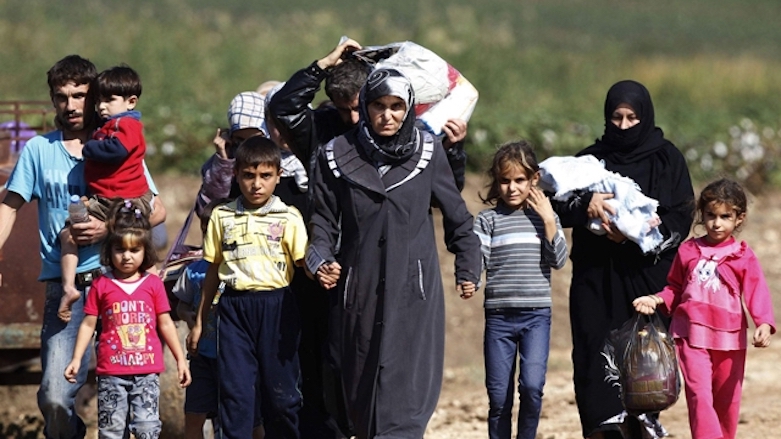No foreseeable solution to Syrian refugee crisis as host nations like Kurdistan shoulder burden

ERBIL (Kurdistan 24) – As the years-long crisis in Syria continues, host nations like the Kurdistan Region continue to bear the brunt of providing shelter and services for thousands of displaced people whose future remains uncertain.
Since 2011, the Syrian civil war has forced millions of people to flee their homes and seek safety abroad or in neighboring countries including the Kurdistan Region.
Approximately 250,000 Syrian refugees fled to the Kurdistan Region at the height of the Syrian crisis and have remained under the protection of the Kurdistan Regional Government (KRG). Thirty-seven percent of them reside in nine refugee camps in the provinces of Erbil, Duhok, and Sulaimani, with the rest being hosted within local communities.
Many of the displaced Syrians cannot return to their homes as entire towns and cities lie in rubble from the years of conflict, and as western states become more rigorous with their immigration policies, those vulnerable are left in exile.
The United States, for instance, continues to decrease and limit the number of refugees it allows into the country as statistics have hit their lowest point since 1980.
According to a Wednesday report by The Washington Post, asylum seekers fleeing civil war like the Syrian people are the most affected by the US’ decision to reduce admission. The total number of Syrian refugees admitted to the US in 2016 was 12,587, but this number significantly dropped to 62 individuals in 2018.
This sudden decrease is also due to the Trump administration’s travel ban decision which prevents individuals from Iran, Libya, North Korea, Somalia, Sudan, Syria, Yemen, and certain government officials from Venezuela from entering the US.
The humanitarian crisis in Syria has created a prolonged displacement problem that is likely to continue for years in the absence of any anticipated resolutions in what the United Nations has declared as the world’s worst humanitarian crises.
Questions remain on what durable solutions there are on the resettlement of Syrian refugees, especially those that are living in the Kurdistan Region.
Editing by Karzan Sulaivany
